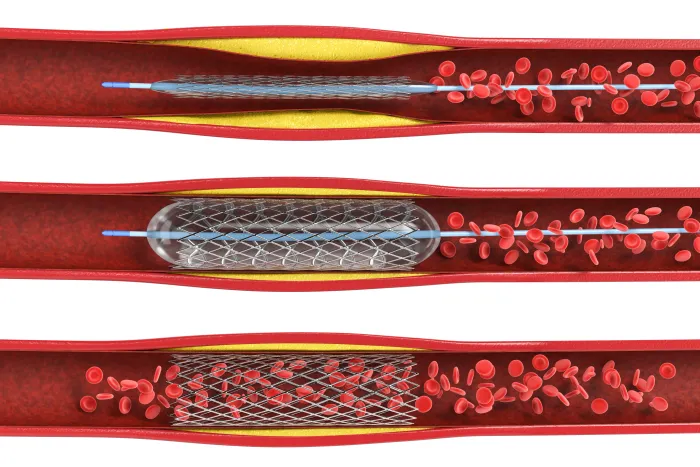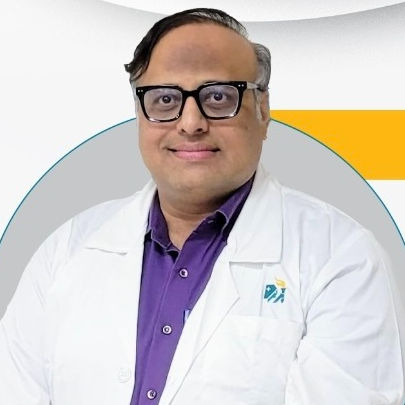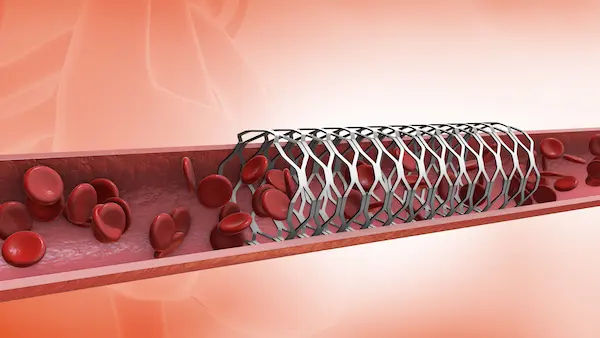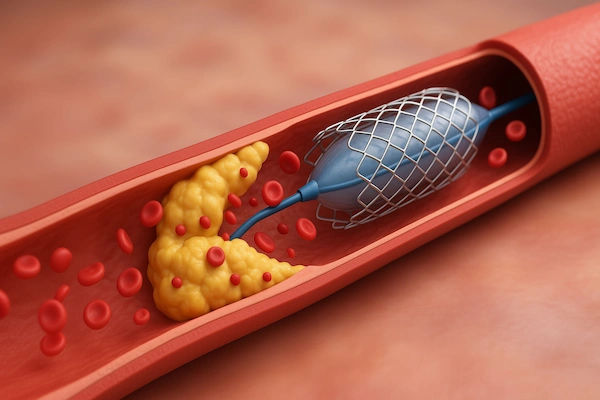Is Anaesthesia Given During Angioplasty
Wondering if anaesthesia is used during angioplasty? Learn about the type of anaesthesia given, what the procedure feels like, and how to prepare for a safe recovery.

Written by Dr. Rohinipriyanka Pondugula
Reviewed by Dr. D Bhanu Prakash MBBS, AFIH, Advanced certificate in critical care medicine, Fellowship in critical care medicine
Last updated on 13th Jan, 2026

Introduction
If you or a loved one has been advised to undergo an angioplasty, you may have questions about the procedure—especially whether anaesthesia is used and what to expect. This article aims to provide clear, reassuring information to help you feel more at ease.
What Is Angioplasty?
Angioplasty is a minimally invasive procedure used to open blocked or narrowed coronary arteries—the blood vessels that supply your heart with oxygen-rich blood. A small balloon is inflated inside the artery to widen it, and often, a stent (a tiny mesh tube) is placed to keep the artery open. This helps improve blood flow to the heart, reducing chest pain (angina) and lowering the risk of a heart attack.
Consult Top Specialists for Personalised Heart Health Advice
Is Anaesthesia Used During Angioplasty?
Yes, anaesthesia is given during angioplasty, but not in the way you might expect. Unlike major surgeries where general anaesthesia (which makes you fully unconscious) is used, angioplasty typically involves local anaesthesia with sedation. Here’s what that means:
1. Local Anaesthesia – The doctor numbs the area where the catheter (a thin, flexible tube) will be inserted, usually in the wrist (radial artery) or groin (femoral artery). You’ll be awake but won’t feel pain at the insertion site.
2. Sedation (Conscious Sedation) – You may be given mild sedatives through an IV to help you relax and stay comfortable. You might feel drowsy but will remain awake enough to follow simple instructions if needed.
General anaesthesia, being completely asleep, is rarely needed unless the procedure becomes more complex or if the patient is extremely anxious.
What Does the Procedure Feel Like?
Since you’re under local anaesthesia and sedation, you shouldn’t feel pain, but you may experience:
A slight pinch when the local anaesthetic is injected.
Pressure or mild discomfort when the catheter is moved, but no sharp pain.
Awareness of the procedure happening, but most patients don’t find it distressing due to the sedatives.
The procedure usually takes 30 minutes to 2 hours, depending on the complexity. After, you’ll be monitored for a few hours to ensure no complications.
Recovery After Angioplasty
Here’s what to expect during the initial recovery period:
Hospital Stay – Most patients go home the same day or after an overnight stay.
Rest – Avoid strenuous activity for a few days.
Incision Care – Keep the catheter insertion site clean and dry.
Medications – You’ll likely be prescribed blood thinners to prevent clots.
Tips for a Smooth Recovery
Recovery might be easier if you follow these suggestions:
1. Follow Doctor’s Advice – Take prescribed medications on time.
2. Stay Hydrated – Helps flush out the contrast dye used during the procedure.
3. Healthy Diet – Focus on heart-healthy foods (fruits, vegetables, whole grains, lean proteins).
4. Gradual Activity – Start with light walks and avoid heavy lifting for a week.
5. Monitor for Complications – Contact your doctor if you notice swelling, bleeding, or severe pain at the insertion site.
When to Seek Help
While angioplasty is generally safe, seek medical attention if you experience:
Chest pain or pressure
Excessive bleeding or swelling at the catheter site
Fever or signs of infection
Conclusion
Angioplasty is a common and safe procedure performed under local anaesthesia with sedation, ensuring minimal discomfort. Knowing what to expect can help ease anxiety. If you have further concerns, consult your doctor or book an appointment through Apollo 24|7 for expert guidance.
Consult Top Cardiologists
Consult Top Specialists for Personalised Heart Health Advice

Dr. Anand Ravi
General Physician
2 Years • MBBS
Bengaluru
PRESTIGE SHANTHINIKETAN - SOCIETY CLINIC, Bengaluru

Dr. Bhethala Sharan Prakash
General Physician/ Internal Medicine Specialist
5 Years • MBBS MD
Bengaluru
PRESTIGE SHANTHINIKETAN - SOCIETY CLINIC, Bengaluru

Dr. Abhijit Vilas Kulkarni
Cardiologist
10 Years • MBBS, MD, DM (Cardio)
Bengaluru
Apollo Hospitals Jayanagar, Bengaluru
(50+ Patients)
Dr. Diganta Buragohain
Cardiologist
1 Years • "DM (Cardiology) in 2025 from NEIGRIHMS, Shillong MD (General Medicine) in 2020 Gauhati Medical College, MBBS in 2015 from Gauhati Medical College,"
Guwahati
Apollo Excelcare Hospital, Guwahati

Dr. Lal Daga
Cardiologist
20 Years • MBBS, DNB [MED], DNB [CARDIO], FESC [INT], MNAMS
Ahmedabad
Apollo Hospitals Gandhinagar, Ahmedabad
Consult Top Cardiologists

Dr. Anand Ravi
General Physician
2 Years • MBBS
Bengaluru
PRESTIGE SHANTHINIKETAN - SOCIETY CLINIC, Bengaluru

Dr. Bhethala Sharan Prakash
General Physician/ Internal Medicine Specialist
5 Years • MBBS MD
Bengaluru
PRESTIGE SHANTHINIKETAN - SOCIETY CLINIC, Bengaluru

Dr. Abhijit Vilas Kulkarni
Cardiologist
10 Years • MBBS, MD, DM (Cardio)
Bengaluru
Apollo Hospitals Jayanagar, Bengaluru
(50+ Patients)
Dr. Diganta Buragohain
Cardiologist
1 Years • "DM (Cardiology) in 2025 from NEIGRIHMS, Shillong MD (General Medicine) in 2020 Gauhati Medical College, MBBS in 2015 from Gauhati Medical College,"
Guwahati
Apollo Excelcare Hospital, Guwahati

Dr. Lal Daga
Cardiologist
20 Years • MBBS, DNB [MED], DNB [CARDIO], FESC [INT], MNAMS
Ahmedabad
Apollo Hospitals Gandhinagar, Ahmedabad
_1.webp)


.webp)
.webp)